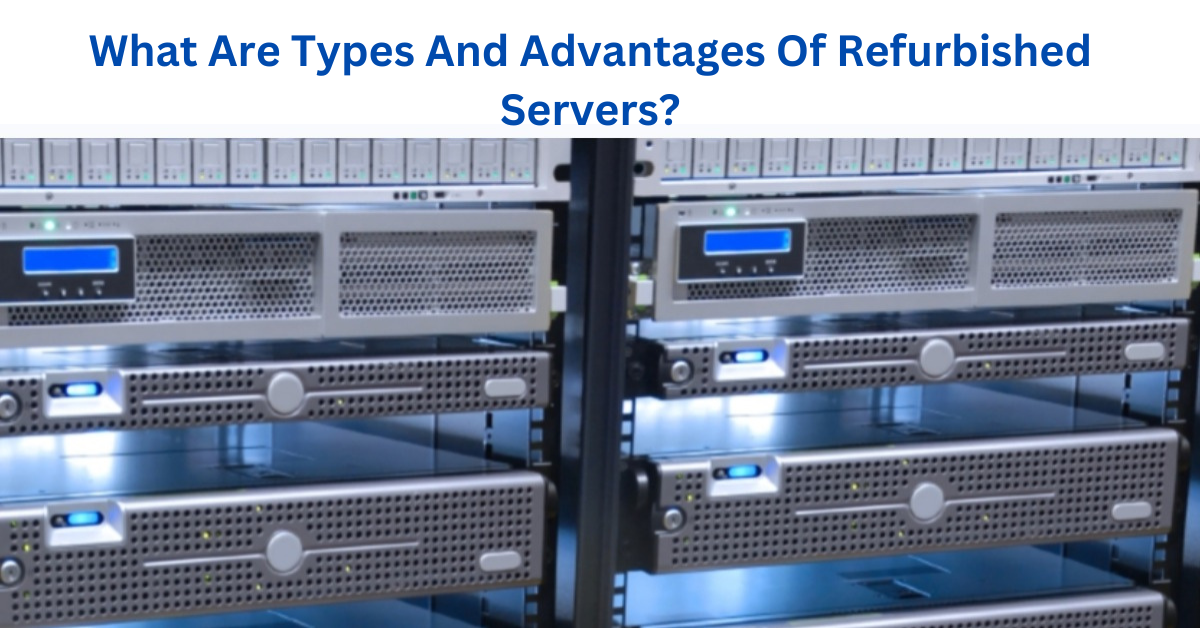Introduction
A server is a computer system that is used to support the activities of an organization. In simple terms, a server provides the infrastructure that enables organizations to run their business. There are different types of servers and each has its own specific role in an IT infrastructure.
The most common type of server is the physical desktop or laptop computer. These systems are used by individual employees to carry out basic tasks such as emailing, browsing the internet, and working on simple office applications. Physical desktop or laptop servers are not commonly used in larger organizations because they require too much maintenance and management overhead.
Types And Advantages Of Refurbished Servers
Servers are essential for running a modern website or business. They’re responsible for handling all the heavy lifting, from processing data to keeping your website and applications up and running. However, not all servers are created equal. In this section, we will outline the different types of servers and their various uses. We will also discuss the advantages of refurbished servers over buying a new server, as well as highlight some of the key benefits that you can expect from opting for this option. Are you looking for cost efficient and fully functioning Server For Rental? If so look no further beyond Server Polo.
First, let’s take a look at what a server is and what it does. A server is essentially an electronic device that helps to run your website or business. It’s responsible for handling all of the heavy lifting – from processing data to keeping your website up and running – so you can focus on more important tasks. Additionally, different types of servers have different uses in the workplace. Here are four of the most common:.
Web Server: A web server is used to host websites on behalf of users. It’s typically responsible for loading pages quickly so that users can access them, as well as providing security measures to protect user data.
Application Server: An application server is used to host applications on behalf of users or businesses. This type of server is typically more powerful than a web server and can be used to provide enhanced features or functionality for specific applications or websites.
Database Server: A database server is used to store data for use by your website or business applications. This type of server is often more powerful than a web or application server and can handle larger amounts of data more easily than either type of server.. Database servers are also often used in conjunction with other typesof servers in order to provide enhanced functionality (such as scalability).
Load Balancer: A load balancer is used to distribute traffic evenly among multiple computers located across multiple locations (known as nodes). This helps ensure that your website remains accessible even if one node goes down (or becomes overloaded). Load balancers are also useful when it comes to scaling your site – by distributing traffic among multiple nodes, you can manage spikes in demand without causing any disruption to your visitors..
An Overview Of Second-Hand Server Options
Server technology is advancing at a rapid pace, and it’s becoming harder and harder to find new servers that are both cost-effective and reliable. This is where used servers come in – they provide the best of both worlds. Used servers are reliable and perform well, but they’re also affordable. In addition, network equipment and hardware can be quite efficient when purchased used, which can save you money in the long run.
To help you make an informed decision when purchasing used servers, we’ve put together a comprehensive overview of Second-Hand Server Options. In this article, we’ll discuss cost efficiency of used servers, reliability and performance of the server, efficiency and flexibility of the hardware, cost effectiveness of network equipment, availability of spare parts and technical support, security features or data encryption options, a comprehensive selection of server operating systems (including Windows & Linux), long term warranties and discounts on purchasing used servers as well as scalability options when upgrading or downgrading the hardware. We hope that this article will help you to make an informed decision when purchasing your next server!
How To Choose The Right Used Server
When it comes to choosing a used server, there are a few things that you should keep in mind. First and foremost, you need to evaluate the type and function of the used server that you are interested in. Are you looking for a general-purpose server or do you need a specific type of server, such as a web server? Once you’ve determined the type of server that you need, evaluate the cost savings that can be had by buying a used server. If the cost savings are high enough, then it may be worth purchasing a used server rather than purchasing new.
However, make sure that the provider is reputable and selling reliable hardware. It’s important to know who you’re buying from – do they have any history of customer complaints? Are they selling outdated or malfunctioning hardware? Furthermore, make sure to check the warranties and support options available for the specific model of used servers that you are considering. Finally, before making your purchase, inspect the condition of the used server to ensure that it is in good working order. If everything looks good on paper, but there are some minor issues with the hardware or software on board, it may not be worth taking on this purchase.
Finally, one last thing to keep in mind when buying a used server is compatibility with your existing system. Make sure to ask about upgrades available for your specific model of used server so that everything will work together seamlessly once installed. This article in the Up Future must have given you a clear idea of the Server.
